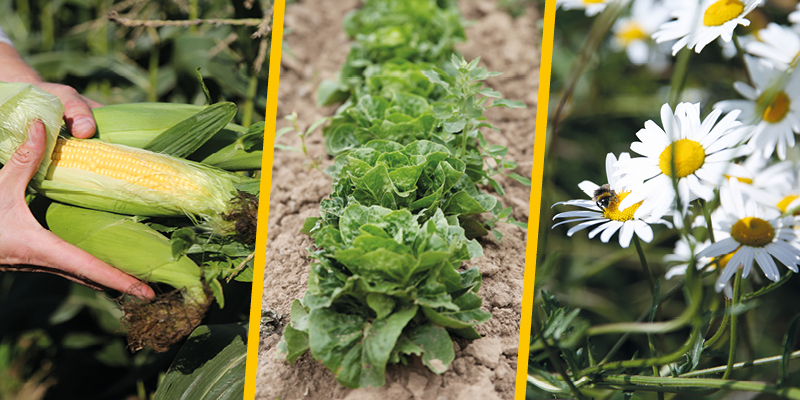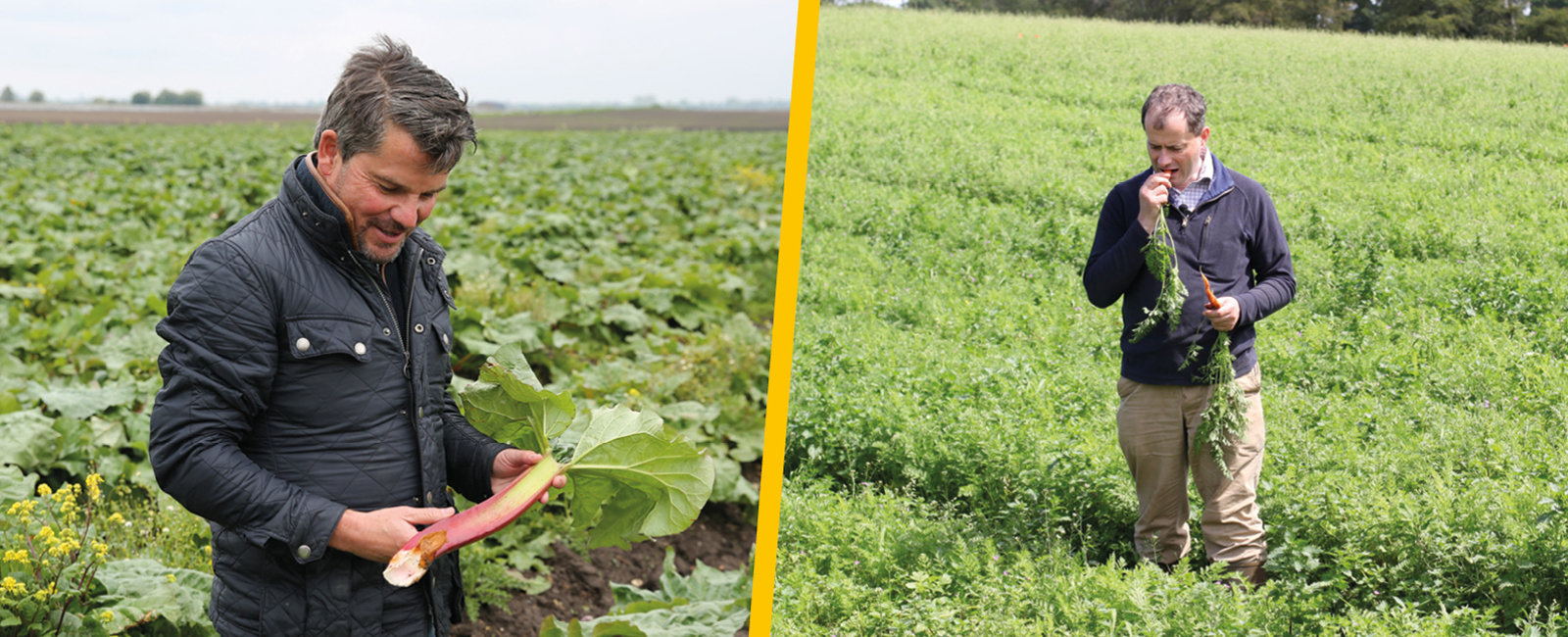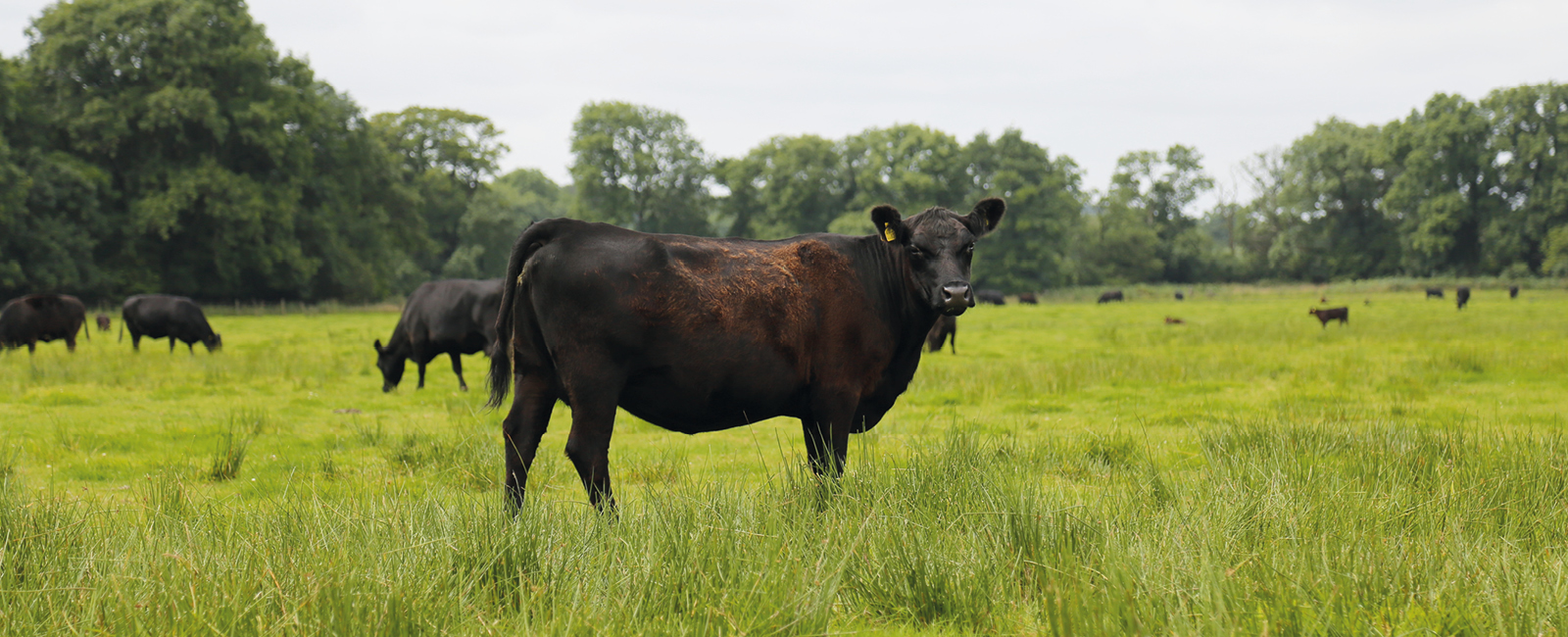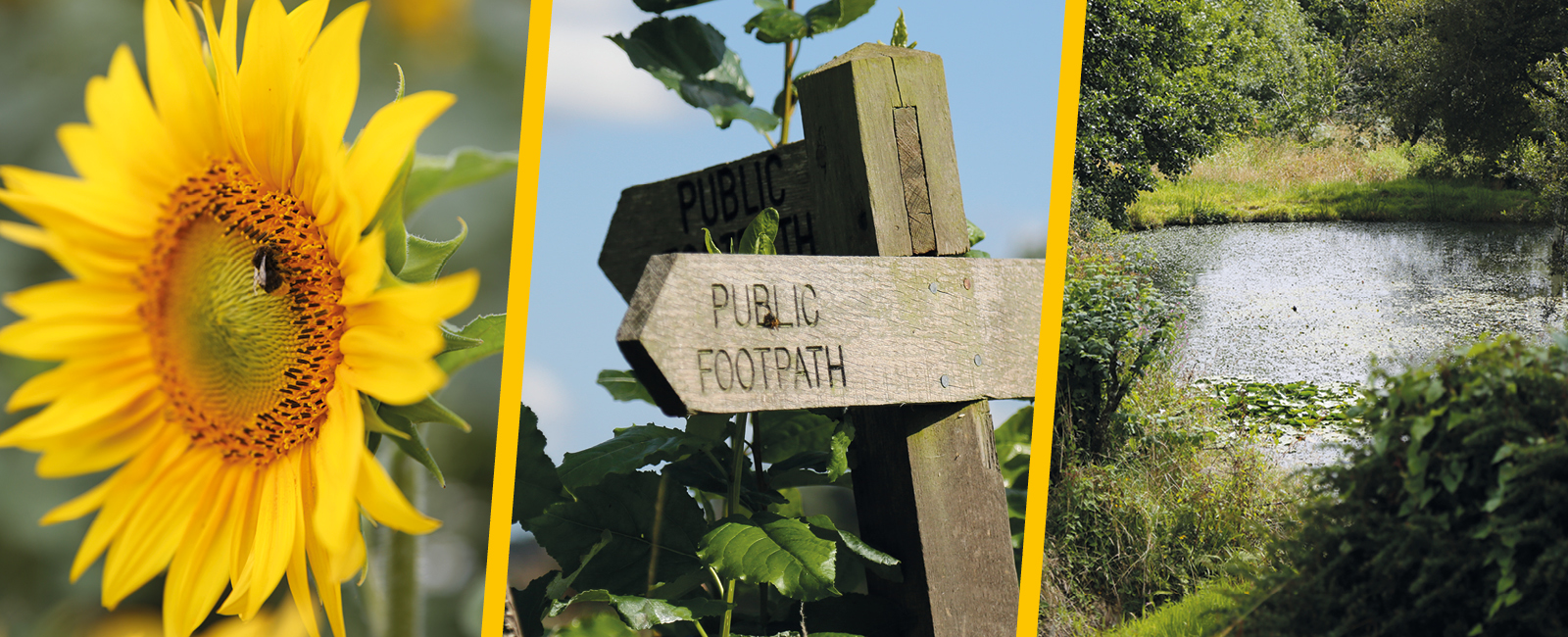Discover the power of plants this Veganuary

We often hear that the intensive practices of non-organic meat and dairy farming are having a profound impact on our world. But why? Intensive farming is a system of cultivation that aims to get the maximum possible yield from the land available. To achieve this, farmers need to employ a great many resources. According to the UN’s Food & Agricultural Organisation, meat and dairy farming account for a weighty 14.5% of the world’s total greenhouse gas emissions.
Clearing habitats to make space for industrial farmland is also the biggest cause of biodiversity loss worldwide. And in order to feed these animals, intensive farms often use fertilisers and pesticides to stimulate rapid grass growth for grazing, or use animal-feed that contains intensively-produced soya (a practice that has been directly linked to deforestation).

The Committee on Climate Change’s recently published Sixth Carbon Budget even recommended a 20% reduction in our total meat consumption in the UK by 2030, firmly underlining the key environmental role that is played by diet. To fight against climate change, we should look to shift our diets “towards ‘less and better’ meat and ‘more and better’ plants”, as succinctly summarised by the organic experts at the Soil Association.
How can we do this? The answer is right under our feet. Organic farmers are committed to safeguarding our planet, its land and soil for future generations. So, whether you’re going fully plant-powered in 2021, or just want to cut back on meat and dairy, choose organic.
A great place to start is by enjoying ‘more and better’ plants. Choosing sustainably-sourced, organic vegan options is a simple (and tasty) way to make your plate more planet-friendly. It’s incredibly important to choose options that are cultivated responsibly, as plant-powered alternatives are often soya-based. According to the WWF: “Behind beef, the production of soya beans is the second largest agricultural driver of deforestation worldwide.” The brilliant people at Sojade only ever use organically-grown, French soya beans in their plant-powered goodies. This guarantees that they aren’t contributing towards the destruction of the rainforests in South America.

If you do choose to eat meat, choose ‘better’. Organic farming ensures the highest standards of animal welfare – something that will always be at the top of our priority list. On organic farms, animals are free to graze and forage on organic pasture with plenty of living space. They’re also fed a nutritional, organic diet, free from any of the GMOs and antibiotics that can be found in intensive farming practices. Eversfield Organic Farm is certified by the Pasture-Fed Livestock Association, which means that Mark Bury rears the farm’s herds and flocks entirely on organic grass, with absolutely no soya-based grain-feed in sight.
By choosing to support organic farming practices, you’re also supporting vital efforts to protect our planet.
Whereas intensive farming clears habitats, organic farming promotes biodiversity. On average, plant, insect and bird life is 50% more abundant on organic farms than non-organic farms. Big grazers have an important part to play in this too, as the benefits of bringing them into an ecosystem can be felt right across the food web, deep into the soil. As our own biodiversity expert, Ed, explains:

What we put on our plates can mean big things for our planet. By following the guidance of organic experts, the Soil Association, we can all vote with our forks for a brighter, more sustainable, and plant-powered future.
Published January 2021


